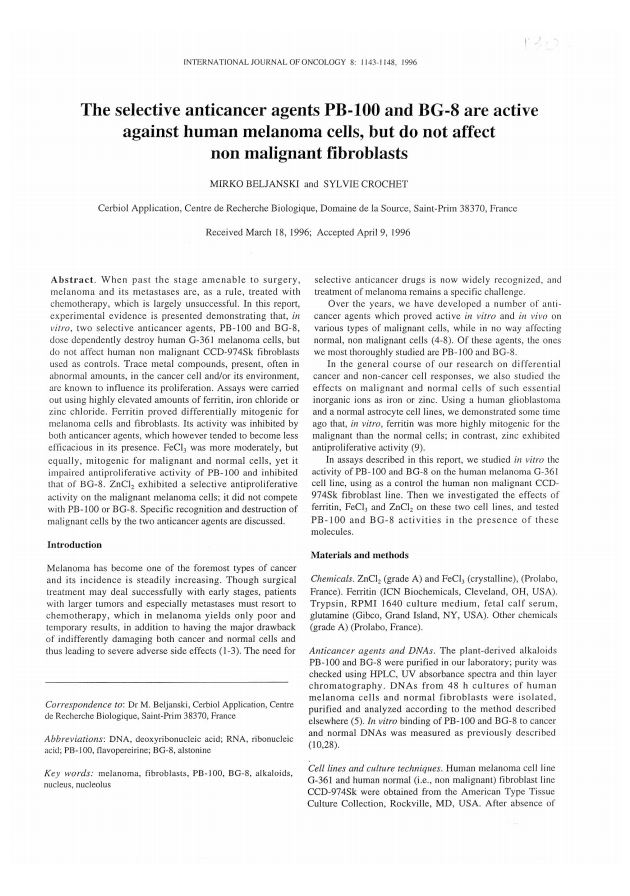130 – The selective anticancer agents PB-100 and BG-8 are active against human melanoma cells, but do not affect non malignant fibroblasts
1996
Authors : S. CROCHET, M. BELJANSKI
International Journal of Oncology 8:1143-1148, 1996
Available in English only
ABSTRACT: When past the stage amenable to surgery, melanoma and its metastases are, as a rule, treated with chemotherapy, which is largely unsuccessful. In this report, experimental evidence is presented demonstrating that, in vitro, two selective anticancer agents, PB-100 and BG-8, dose dependently destroy human G-361 melanoma cells, but do not affect human non malignant CCD-974Sk fibroblasts used as controls. Trace metal compounds, present, often in abnormal amounts, in the cancer cell and/or its environment, are known to influence its proliferation. Assays were carried out using highly elevated amounts of ferritin, iron chloride or zinc chloride. Ferritin proved differentially mitogenic for melanoma cells and fibroblasts. Its activity was inhibited by both anticancer agents, which however tended to become less efficacious in its presence. FeCl3 was more moderately, but equally, mitogenic for malignant and normal cells, yet it impaired antiproliferative activity of PB-100 and inhibited that of BG-8. ZnCl2 exhibited a selective antiproliferative activity on the malignant melanoma cells; it did not compete with PB-100 or BG-8. Specific recognition and destruction of malignant cells by the two anticancer agents are discussed.Voir le document
Partager
uncode-placeholder




